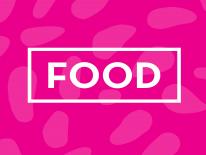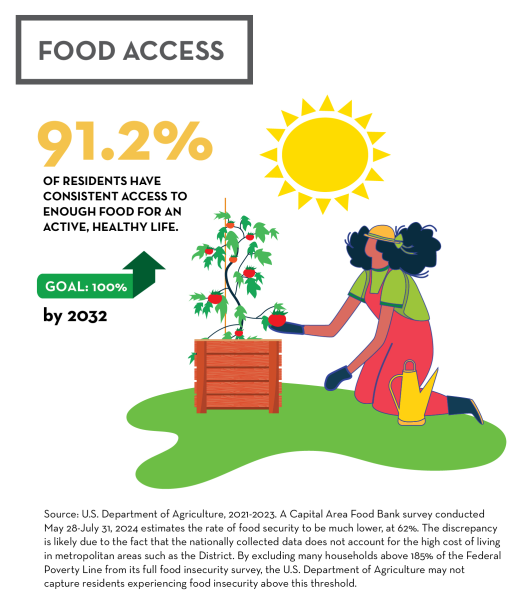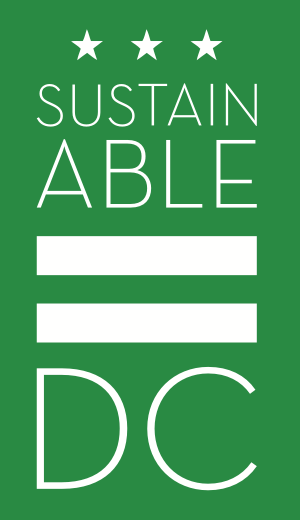

 The District's approach to food—from production to consumption and disposal—affects community well-being, health, and sustainability. Despite progress in increasing access to healthy food in underserved areas, disparities in food security persist. These disparities were made even worse by the COVID-19 public health emergency, whose impacts were felt long after 2020. The District can eliminate these disparities and create a healthy, equitable, and resilient food system with a dedicated, multifaceted approach. This includes supporting urban agriculture, providing incentives to fill the grocery store gap among wards, offering grants for healthy and culturally relevant food establishments, reducing barriers to fresh produce, offering nutrition and cooking education, and encouraging food donation through policy.
The District's approach to food—from production to consumption and disposal—affects community well-being, health, and sustainability. Despite progress in increasing access to healthy food in underserved areas, disparities in food security persist. These disparities were made even worse by the COVID-19 public health emergency, whose impacts were felt long after 2020. The District can eliminate these disparities and create a healthy, equitable, and resilient food system with a dedicated, multifaceted approach. This includes supporting urban agriculture, providing incentives to fill the grocery store gap among wards, offering grants for healthy and culturally relevant food establishments, reducing barriers to fresh produce, offering nutrition and cooking education, and encouraging food donation through policy.
Goal 1: Expand agricultural uses and production within the District
Status:  The average progress score of actions under this goal is between “Moderate Progress” (2 out of 4) and “Significant Progress” (3 out of 4). See annual progress reports for details.
The average progress score of actions under this goal is between “Moderate Progress” (2 out of 4) and “Significant Progress” (3 out of 4). See annual progress reports for details.
What's Been Done?
- The DC Urban Farming and Food Security Act established a 90% tax abatement for private land owners who use, lease, or allow their land to be used for urban agriculture.
- In the 2023-24 school year, 134 public and public charter school campuses had school gardens, out of 227.
- The District Department of Transportation and Department of Parks and Recreation have planted food-producing landscaping, including a food forest at Langley Elementary.
- The Office of Urban Agriculture hosts Rooting DC, the District’s central meeting ground for individuals and nonprofits looking to grow gardens and a healthier food system.
What is Left to Do?
- Continue implementing the “Urban Farming and Food Security Act” and expedite the process to make public and private lands available for a variety of urban agriculture uses.
- Develop food-producing landscaping on five acres of District public spaces distributed throughout all eight wards.
- Develop and support school gardens and garden-based food system education to engage DC Public School and charter school students.
Goal 2: Ensure that all residents have access to affordable, quality, and nutritious food
Status:  The average progress score of actions under this goal is “Significant Progress” (3 out of 4). See annual progress reports for details.
The average progress score of actions under this goal is “Significant Progress” (3 out of 4). See annual progress reports for details.
What's Been Done?
- DC Health has several programs to increase access to fresh and local food, including Produce Plus, Healthy Corner Stores Partnership, and Joyful Food Markets.
- Nourish DC was launched to provide grants, loans, and technical assistance to local food businesses in underserved communities.
- The District tracks and works to reduce the emissions associated with its food purchases.
What is Left to Do?
- Identify and implement effective, innovative policies to recruit quality, full-service grocery stores to underserved areas.
- Provide financial support and technical assistance to small retailers and mobile food vendors to expand healthy, culturally appropriate food options for neighborhoods with limited access to fresh and healthy food.
- Expand and promote food assistance programs at grocery stores, farmers markets, and corner stores citywide.
- Support evidence-based nutrition and cooking education efforts across all populations to help residents make healthier choices.
- Implement the Nutrition Education Plan to make nutrition education as comprehensive as possible and to nurture students’ healthy eating habits.
- Improve the quality of institutional food grown or purchased with District local funds, including in DC Public Schools and public charter schools, childcare centers, jails, homeless shelters, and other institutional settings.
Goal 3: Develop and support the food industry as a vibrant and equitable sector of the local economy
Status:  The average progress score of actions under this goal is between “Significant Progress” (3 out of 4) and Completed or Institutionalized (4 out of 4). See annual progress reports for details.
The average progress score of actions under this goal is between “Significant Progress” (3 out of 4) and Completed or Institutionalized (4 out of 4). See annual progress reports for details.
What's Been Done?
- The Food Policy Council regularly publishes Food System Assessment reports that cover key indicators of the District’s food system, innovative approaches to advancing food security and a healthy food system, and recommendations for a healthier, more equitable, and sustainable food system.
- The Food Policy Council published “Make Food Work: A Strategy to Strengthen the DC Food Workforce” as a roadmap for improving job quality and expanding career pathways within the District’s food workforce.
What is Left to Do?
- Collaborate regionally on the creation of a local food hub and other facilities for aggregation, processing, and distribution of local food products.
Goal 4: Prevent, reduce, and recover food waste
Status:  The average progress score of actions under this goal is between “Initiated” (1 out of 4) and “Moderate Progress” (2 out of 4). See annual progress reports for details.
The average progress score of actions under this goal is between “Initiated” (1 out of 4) and “Moderate Progress” (2 out of 4). See annual progress reports for details.
What's Been Done?
- The District participates in Food Recovery Week, a week‐long outreach campaign focused on teaching businesses and residents how to reduce food waste.
- The Department of Public Works, DC Health, and the DC Food Policy Council collaborated to develop the Commercial Food Donation Guide.
- The Department of Public Works provides several options for residents to transform their food scraps into compost.
What is Left to Do?
- Conduct a food waste assessment to identify the types and quantities of food that are thrown away in the District.
- Continue educating businesses and institutions on how to prevent food waste, recover unused food, and understand liability protections.
- Incentivize food donations by businesses, schools, and institutions through policy changes.
- Continue educating residents and food related businesses on proper buying, storing, and disposing of food to minimize waste.
Last updated: June 2025

